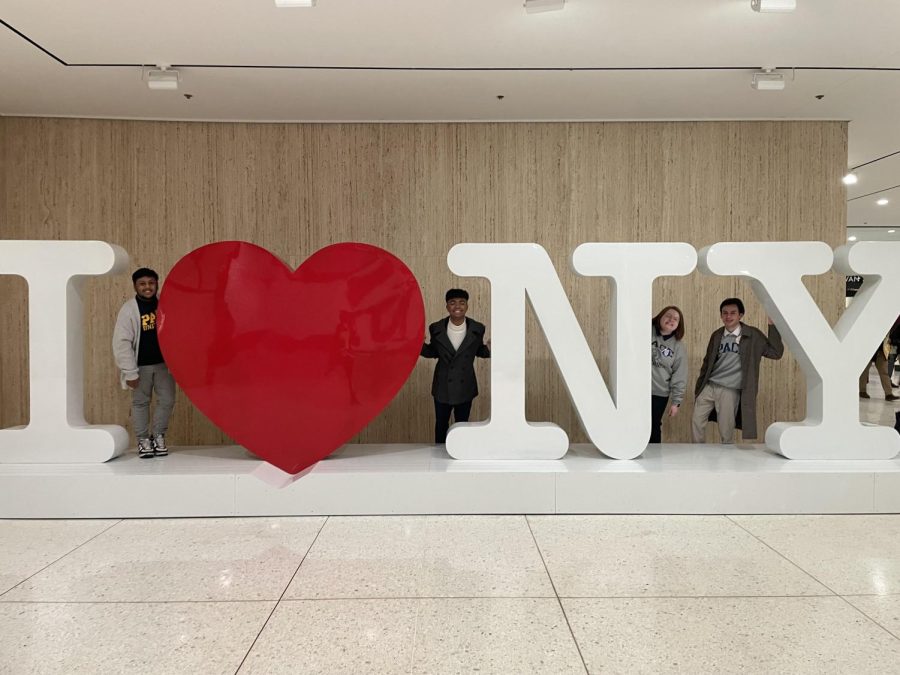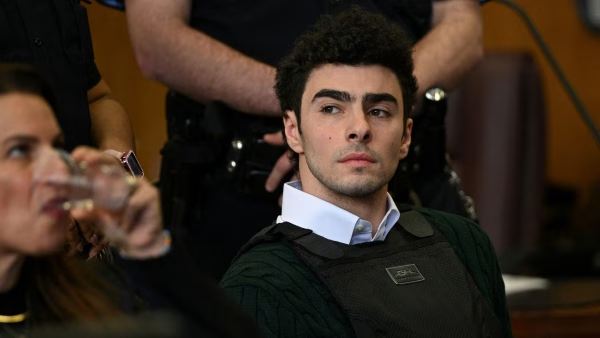Students champion amended financial aid policies on Student Aid Advocacy Day
February 16, 2023
In the company of other collegiate institutions, Pace University students lobbied at Student Aid Advocacy Day in Albany, New York, on Feb. 14 for policy changes regarding New York State’s Tuition Assistance Program (TAP), Direct Institutional (“Bundy”) Aid and increased funding for several opportunity programs.
Under the purview of University Public Affairs, Aman Islam (‘24), Taylor Mangus (‘23), Noah Saskowski (‘24) and Jeremiah Williams (‘23) spoke with Assembly representatives for New York City and Westchester to capitalize on the need to invest in student success through more inclusive policies surrounding financial aid services for higher education.
University Public Affairs, a department not traditionally involved in student-facing expenditures, made a concerted effort to expose University students to elected officials, specifically those who oversee the creation and revision of higher education financial aid policies and requirements.
“At Pace University, we prepare our students for real-life experiences by prioritizing experiential learning,” said Chantel Cabrera, Director of New York City Public Affairs. “On more than one occasion, staff from other institutions described Pace students as impressive and legislative staffers commented on how impactful their stories were. They embodied the go-getter spirit, and the Majority Leader said as much. I was proud and grateful for their participation.”
One of the most memorable moments for students was meeting and contributing to conversations with University Alumni and Majority Leader of the New York State Senate, Andrea Stewart-Cousins. Mangus, Pace Debates Vice President, commented on Stewart-Cousins’ investment and devotion to students who are optimistic for the future of increased, comprehensive funding in higher education.
“Having the opportunity to sit in the gallery of the state assembly hall inside the Capitol building was an incredible experience,” said Williams, the President of Pace Debates. “It was surreal to witness lawmakers speaking on the floor, but it was also a glaring reminder that we need more young, informed and engaged perspectives in government roles.”
TAP financially assists eligible New York residents with tuition for approved NYS public and private higher education institutions, with a minimum reward of $500 and a maximum of $5,665. Eligibility requires the student to be a legal NYS resident for 12 continuous months with a taxable income limit of $80,000, specifically for dependent or independent undergraduate students who are married or unmarried with tax dependents, orphans, foster children or wards of the court and be charged a minimum of $200 in tuition per year, among other stipulations.
Islam, Executive President of the Student Government Association (SGA), expressed that the University is “very expensive, and without financial aid, many talented people would not have the opportunity to be on our campus.” Islam noted that he does not qualify for TAP “due to the current income limits that TAP provides. If NYS increased the TAP, I would qualify. The current minimum award of $500 is simply not enough, so I fought for an increase in that.”
University students advocated increasing the minimum award to $1,000, increasing the taxable income limit to $110,000 and restoring graduate education financial assistance relative to TAP. Islam, Mangus, Saskowski and Williams also championed increasing funding in additional opportunity programs such as the Higher Education Opportunity Program (HEOP), which ensures students are provided with adequate academic support through tuition and supplemental financial assistance; the Collegiate Science and Technology Entry Program (CSTEP), which represents an increasing number of marginalized students pursuing professional licensures and careers within the mathematic, scientific, technological or health-related industries; and Liberty Partnerships Program (LPP), a collaborative organization of 46 higher education institutions across NYS aimed “to support at-risk middle and high school students in their academic, social and emotional development” through mentoring, socio-emotional counseling and career and college exploration activities, according to their website.
“I’ve encountered so many students during my time at Pace who have benefited from TAP, as well as many students who have not had access to that funding,” said Mangus. “Expanding upon the program gives so many New Yorkers more opportunities.”
Among the opportunity programs listed above, the Commission on Independent Colleges & Universities (CICU) in New York, a statewide representative for “the public policy interests of chief executives for more than 100 independent colleges and universities” in NYS, asked Assembly members to increase all opportunity program funding by 10 percent.
The Association of Program Administrators for C-STEP and STEP (APACS), who support the advancement in equity, access and excellence in education by fostering “the development of policies and practices that enhance and increase” the aforementioned educational qualities, asked for all STEP/C-STEP programs to increase funding by 20 percent. LPP asked for a 20 percent increase in funding for its programs.
The “Bundy” Aid, which provides direct funding to independent colleges, has a current $35.13 million fund used as a financial aid service to enhance and support students’ educational experiences on campuses in NYS. Representatives of the Bundy Aid asked to increase their funding by 10 percent, or $38.6 million.
Williams urged students to continue the fight for financial relief in higher education and to partake in advocacy to make real changes whenever the opportunity arises. “If you’re still breathing, then it’s not over,” he said. “Whatever your cause, fight or passion is. If you live by that code you will feel impassioned to stand up and advocate for a better future. I wanted those assembly persons to know, ‘we will not compromise on financing our futures. We deserve an equal shot at changing our lives.’”
While financial aid was the topic of discussion, the larger message on Student Aid Advocacy Day is to hear from those impacted most by the policies in place, to reflect on the effective practice of such legislation and acknowledge University students who are in the thick of leading the charge to a different future.












